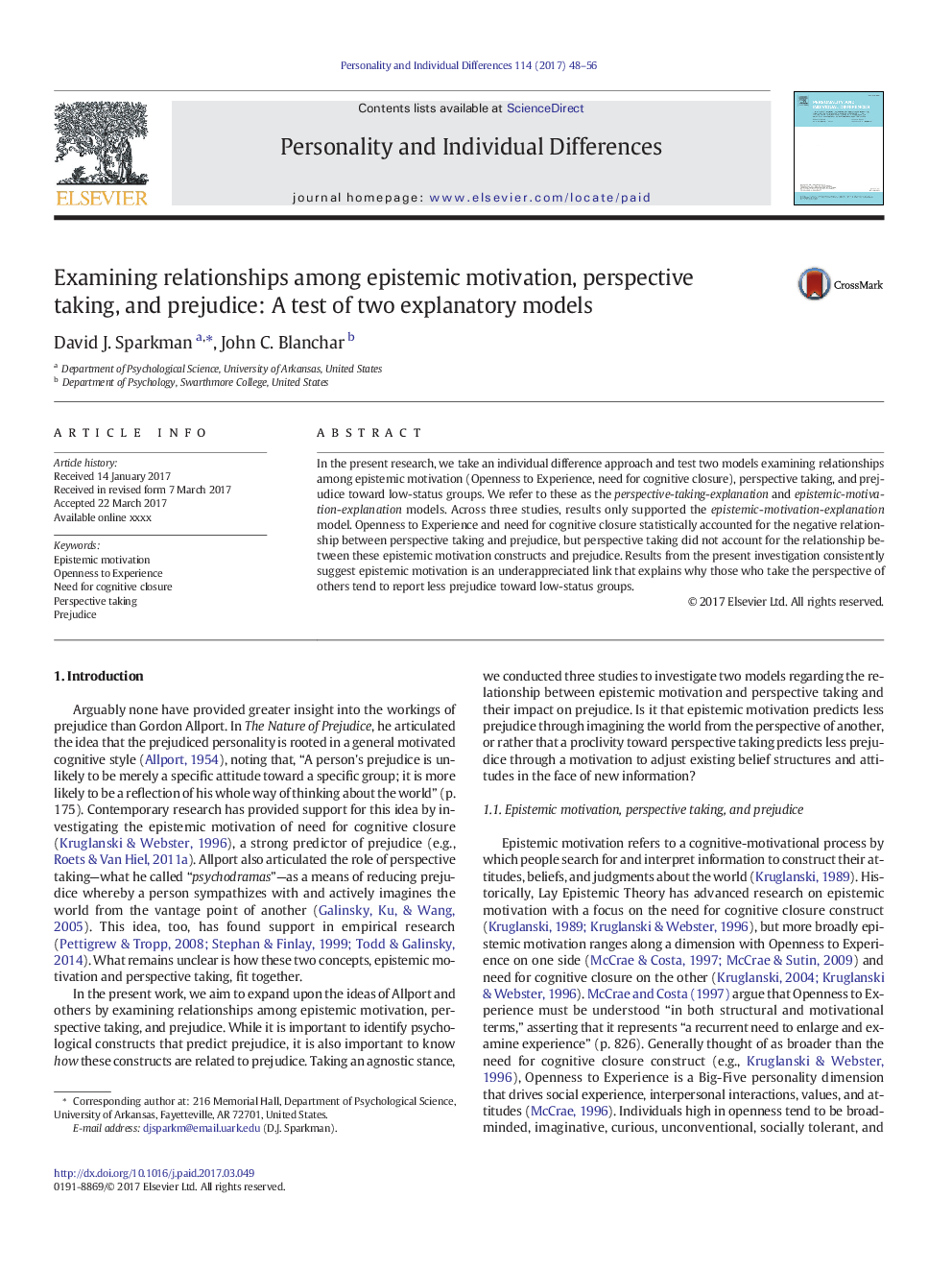ترجمه فارسی عنوان مقاله
بررسی رابطه بین انگیزه معرفتی، دیدگاه و تعصب: آزمون دو مدل توضیحی
عنوان انگلیسی
Examining relationships among epistemic motivation, perspective taking, and prejudice: A test of two explanatory models
| کد مقاله | سال انتشار | تعداد صفحات مقاله انگلیسی |
|---|---|---|
| 132426 | 2017 | 9 صفحه PDF |
منبع

Publisher : Elsevier - Science Direct (الزویر - ساینس دایرکت)
Journal : Personality and Individual Differences, Volume 114, 1 August 2017, Pages 48-56
ترجمه کلمات کلیدی
انگیزش معرفتی، باز بودن به تجربه، نیاز به بستن شناختی، چشم انداز، تعصب،
کلمات کلیدی انگلیسی
Epistemic motivation; Openness to Experience; Need for cognitive closure; Perspective taking; Prejudice;
ترجمه چکیده
در پژوهش حاضر، ما یک رویکرد تفاوت فردی را آزمایش می کنیم و دو مدل را بررسی می کنیم که روابط بین انگیزه معرفتی (باز بودن به تجربه، نیاز به بستن شناختی)، دیدگاه و تعصب در برابر گروه های کم وضعیت است. ما به این ها به عنوان دیدگاه نگاه کردن به توضیح و مدل های توضیح انگیزه معرفتی اشاره می کنیم. در سه مطالعه، نتایج فقط از مدل معرفت شناسی-انگیزشی توضیح پشتیبانی می کند. باز بودن به تجربه و نیاز به بستن شناختی، به لحاظ آماری رابطه منفی بین چشم انداز و تعصبات را در نظر گرفت، اما توجه به چشم انداز ارتباط بین این ساختارهای انگیزشی معرفتی و تعصبات را در نظر نگرفت. نتایج تحقیقات کنونی نشان می دهد که انگیزه معرفتی یک پیوند زیر است که توضیح می دهد که چرا کسانی که دیدگاه دیگران را دارند، تمایل کمتری نسبت به گروه های کم وضعیت دارند.

